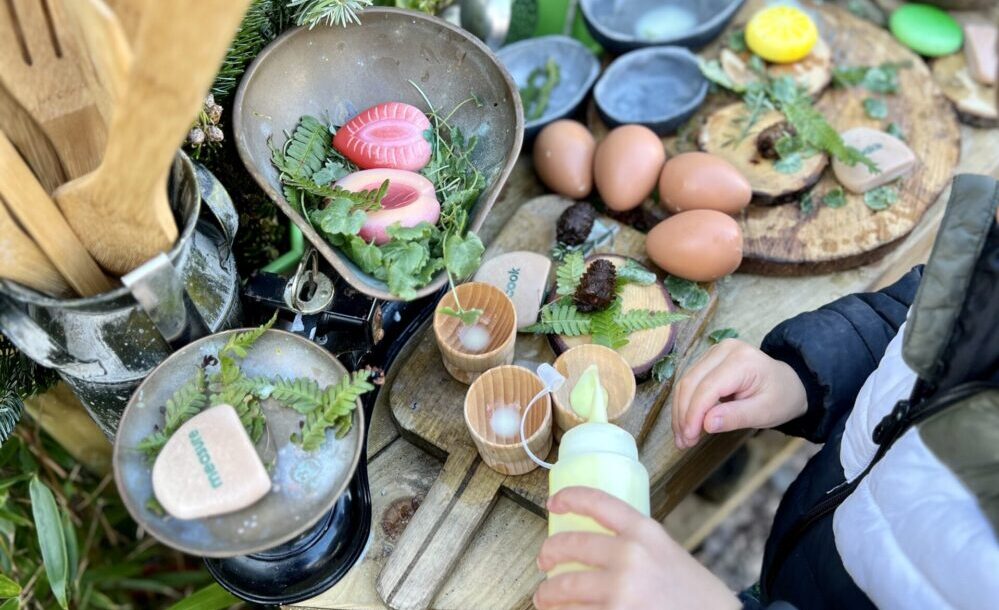
Finding meaning in mud
Creating space for a mud kitchen in your setting will have a significant impact on the learning of the children in your care. Here’s our 10 marvelous reasons for muddy play!

Creating space for a mud kitchen in your setting will have a significant impact on the learning of the children in your care. Here’s our 10 marvelous reasons for muddy play!
Nursery rhymes and songs are wonderful! Not just because they are fun and engaging for young children, but because they can make a real difference to children’s language and literacy. Research suggests that children who have a good understanding of rhyme do better in their literacy than children who have poor skills in this area.
In the villages around Cambridge – Yellow Door’s home, residents know harvest is happening when they hear tractors rumble by, see farmers putting their combine harvesters to work, and haystacks appearing in the fields. The fruit and vegetable stalls in the city market fill with autumnal produce: a celebration of hedgerows, orchards and fields.
Much has been said about the phenomenon of Forest School in recent years. Many practitioners, parents and children across the UK will probably be able to tell you about a nearby forest school or give examples of what a forest school session might include. However, the key question in the forest school community is:
In order to protect and nurture this inspirational movement, how do we define what Forest School really is?
Heuristic play for young children is based on open-ended resources that can be explored and investigated, and that encourage hypothesising (predicting what might happen). Such free exploration helps children to discovery things that make the world comprehensible, increases their cognitive development, supports their hand/eye co-ordination and helps them become resilient learners.
Kristen Dutton, Nursery Manager of Sunflower Nursery in Cambridge, picks her favourites from our range of resources for babies and toddlers.
While we all like to be beside the seaside, it’s not always conveniently near us! Bring the beach to your setting with these exciting ideas.
A Montessori nursery follows the philosophies and teachings of Dr. Maria Montessori. It is designed to take advantage of the sensitive years between the ages of three and five, when the child is most able to absorb information from his environment.
Many two-year olds will spend more time with you in your setting than they do with their own parents, so it’s important to provide a caring and supportive environment where your children feel they belong. It needs to be thoughtfully laid out as well as practical.